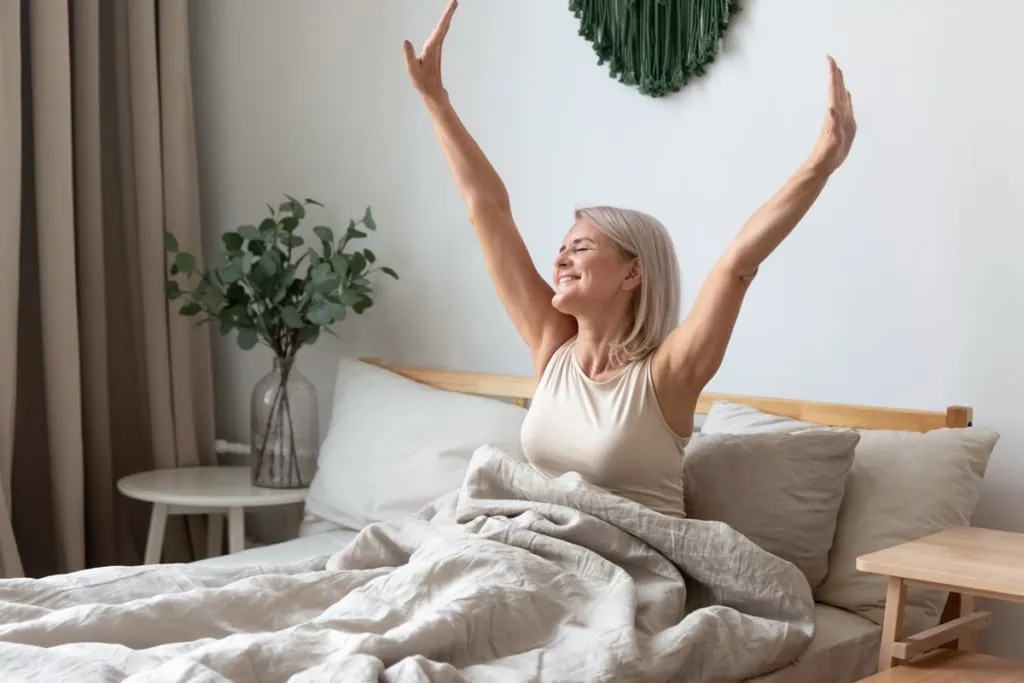
As we all know, sleep is an essential part of our daily routine. It allows our bodies to restore energy and provide better physical and mental health. However, we may not realize that the specifics of our sleep needs vary between men and women. Therefore, I would like to take this opportunity to explore the differences that impact the sleep quality of our female demographic.
Various issues can impact a woman’s sleep, and we will review them in this article. The problems are as follows: insomnia, sleep-related eating disorders, pain, fluctuating hormones, shift work (nurses as an example), sleep apnea, underlying health conditions, and social or cultural influences. Let’s take a moment to review each of these individually.
Insomnia
Insomnia is a sleep disorder that is 40% more likely to affect women than men. It presents as an inability or difficulty falling asleep or staying asleep, resulting in women not getting the recommended 7-9 hours of sleep that an adult requires. When women cannot maintain consistent sleep patterns, it can impact their daily quality of life by decreasing their daytime energy levels and productivity. Women may also experience increased bouts of insomnia due to hormonal changes during menopause. The hormonal changes can cause women to suffer from hot flashes and night sweats that would undoubtedly impact their sleep. Women are also two times more like to suffer from episodes of depression and anxiety, which will also cause them to experience insomnia symptoms.
Sleep-Related Eating Disorders
Studies show that women are more likely to suffer from an eating disorder and, more specifically, a sleep-related eating disorder than men. Sleep-related eating disorders are a condition that’s known as parasomnia, and the person has no recollection of getting up throughout the night and eating. As you can imagine, this is not ideal and can have various effects on a person’s health over time. Sleep deprivation can result in our body’s inability to control the hormone that regulates our appetite. Quite often, sleep and eating disorders have a bidirectional relationship; this means that the eating disorder can impact sleep quality, and one’s sleep quality can, in turn, affect the eating disorder; it can become a vicious circle. The first step to addressing the issue is acknowledging it and then making the appropriate lifestyle changes.
Pain And Fluctuating Hormones
Various chronic pain conditions that primarily affect women include migraine, tension headaches, heartburn, arthritis, and fibromyalgia. While the list is not limited to these alone, they all have a damaging effect on a person’s sleep. When women suffer from the symptoms that result from these chronic pains throughout the night, it limits the amount of sleep they can achieve and the stages of sleep that they can experience. This sleep deprivation will cause daytime sleepiness and inability to function at their full potential.
Women may also experience fluctuations in their hormones as a result of not only menopause but also their menstrual cycle and pregnancy. Hormones are one of the significant sleep differences between women and men. They can ultimately have a very high impact on a female’s sleep patterns and sleep quality. These changes in our hormonal levels can change our sleep architecture and sleep timing, and sleep patterns.
Shift Work
Reports have shown that women that do shift work are more likely to suffer from a sleeping disorder that can impact their quality of life. This is because women often take a position that does not fall into the standard 9-5 hours to balance the home and work schedule for childcare and the shared responsibilities between them and their partner. This type of schedule can result in the shift worker having a higher strain on their social and family life. This can result in higher levels of stress and anxiety that can most certainly impact their sleep. Women who actively participate in shift work and feel it affects their sleep patterns or cycle should seek medical advice to establish a possible solution and avoid any disproportionate impact on their sleep quality.
Sleep Apnea, Underlying Health Conditions, And Social Or Cultural Influences
As women age and start to experience the symptoms of menopause, they will also have hormonal changes. These hormonal fluctuations can cause an increase in abdominal fats and a decrease in progesterone levels, which can result in a higher risk of suffering from sleep apnea. Sleep apnea is a condition where your airway becomes obstructed, and you may then snore, choke, or even gasp. These symptoms can impact the level of sleep that we can obtain throughout the night. Women who feel they may be suffering from this condition should seek medical advice as various treatment options could improve their quality of life.
Studies show that women are more likely to be diagnosed with depression and anxiety resulting from any underlying health conditions and social or cultural influences. These, along with several other underlying health conditions, can significantly impact women’s sleep. Mental health issues often reflect an inability to fall asleep or stay asleep. In addition, women tend to take on more of the caregiving role to ensure that their families are always taken care of and come first. A woman’s inherent need to nurture and put others first can cause them to have higher stress levels. These higher stress levels can impact our ability to maintain good sleep habits and hygiene.
As women, we need to work to find a balance between work, home, and life. Finding this balance will help mitigate several issues that can play a role in disturbing our quality of sleep. All too often, there are things in life that we cannot control, such as our hormones; however, the more we work on the things that we can maintain, the better we will be. Practising good sleep habits and healthy lifestyle choices will allow us to achieve the much-needed healthy sleep that we deserve.
If you are looking to improve on your beauty sleep, locate our nearest sleep clinic and speak with one of our sleep experts.




